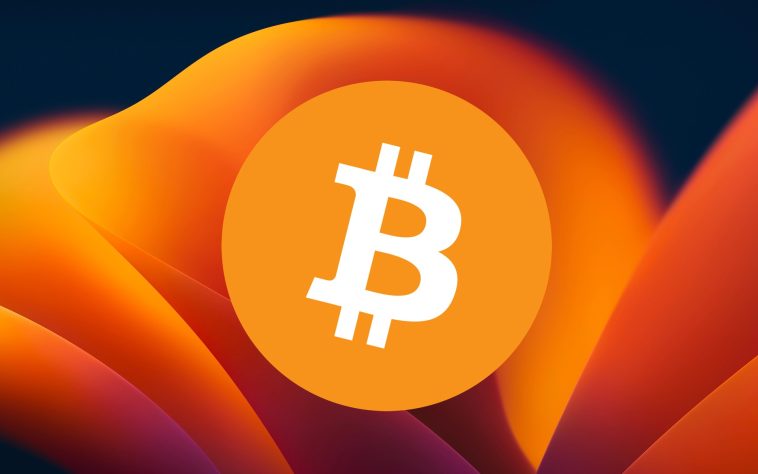Introduction.
Bitcoin is no longer just a buzzword. It’s become a global financial game-changer. If you’re in Nigeria and have been thinking about jumping on the Bitcoin bandwagon, you’re not alone.
Nigerians are increasingly looking at Bitcoin as an alternative investment option, especially with the rising inflation rates and the volatile naira.
Bitcoin can offer a way to store value and even make money—if you know how to buy it the right way.
But here’s the thing: buying Bitcoin in Nigeria might feel a bit overwhelming at first. With so many platforms, wallets, and payment methods out there, it’s easy to get confused. But don’t worry—I’ll break it all down for you.
By the end of this guide, you’ll have a solid understanding of how to buy Bitcoin in Nigeria safely and effectively.
Why Buy Bitcoin in Nigeria?
First, let’s talk about why Bitcoin is gaining so much attention in Nigeria. The country has faced economic challenges over the years, with inflation consistently rising and the value of the naira fluctuating wildly. In this environment, many Nigerians have turned to Bitcoin as a way to protect their wealth and even grow it.
Bitcoin isn’t tied to any government or financial institution, which means it isn’t affected by the same inflationary pressures that affect local currencies.
You can also send Bitcoin across borders with little hassle, which is a huge benefit in a country like Nigeria where people have strong ties to other nations, especially in the diaspora.
Additionally, the number of Bitcoin users in Nigeria has been growing steadily. According to data from the Central Bank of Nigeria (CBN) and global cryptocurrency platforms, the number of Nigerians investing in Bitcoin has been on the rise, making it one of the top African countries for Bitcoin adoption.
If you’re looking for a new way to diversify your investments or just want to dip your toes into the world of cryptocurrency, learning how to buy Bitcoin in Nigeria is a smart move.
How Do I Buy Bitcoin in Nigeria?
Now, let’s get into the meat of the matter. Buying Bitcoin in Nigeria is fairly straightforward once you know what to do. I’ll guide you through it step-by-step.
1. Choose a Reliable Bitcoin Exchange
The first thing you need is a reliable exchange where you can buy Bitcoin. In Nigeria, there are several options, but some are more popular and trustworthy than others. Here are a few you can consider:
- Luno: One of the most trusted platforms in Nigeria. Luno has been around for years and allows you to buy, sell, and store Bitcoin. The interface is easy to use, and it’s well-suited for beginners.
- Binance: A global leader in the crypto space. Binance offers a wide range of cryptocurrencies to trade, including Bitcoin. It’s known for low fees and a variety of payment methods.
- Quidax: A Nigerian-based exchange that’s gained popularity due to its user-friendly design and local payment options. They make it easy for Nigerians to buy Bitcoin using Naira.
- Remitano: Another good option for Nigerians. Remitano offers peer-to-peer trading, so you can buy Bitcoin directly from other users using local payment methods.
When choosing an exchange, make sure it has a good reputation and strong security measures. Always check for reviews and user feedback to see how the exchange works in real-life scenarios.
2. Set Up Your Account
Once you’ve chosen an exchange, the next step is to create an account. This process is usually simple—just like signing up for any other online platform.
You’ll be asked to provide your email address, set a password, and go through a verification process.
Some exchanges will require you to submit proof of identity, especially for higher transactions, to ensure they comply with regulations.
3. Fund Your Account
To buy Bitcoin, you’ll need to fund your exchange account. The most common ways to fund an account in Nigeria are:
- Bank Transfer: Most exchanges allow you to link your bank account and transfer Naira to your exchange account. This is usually free or comes with a minimal fee, but it can take some time to process (usually 1-3 days).
- Payment Apps: Some exchanges support mobile payment apps like Paystack or Flutterwave, which can make funding your account faster and more convenient.
- P2P (Peer-to-Peer): Platforms like Binance and Remitano offer peer-to-peer trading, where you can buy Bitcoin directly from other users using local payment methods like bank transfers or mobile money.
Make sure the exchange you choose supports Nigerian Naira (NGN), so you don’t run into issues when trying to fund your account.
4. Buy Bitcoin
Once your account is funded, the next step is to buy Bitcoin. This is where it gets exciting. The process is usually as simple as selecting Bitcoin from the list of available cryptocurrencies, entering the amount you want to buy, and confirming the transaction.
If you’re using an exchange like Luno or Binance, you’ll have the option to either buy a fixed amount or a percentage of Bitcoin based on your Naira deposit.
Some platforms also offer “instant buy” options where you can buy Bitcoin at the current market price with just a few clicks. However, it’s always a good idea to check the price and fees before confirming your purchase.
5. Store Your Bitcoin Safely
Once your Bitcoin purchase is successful, it’s time to store it securely. You can leave your Bitcoin on the exchange, but this isn’t the safest option. Exchanges can be hacked, so it’s a good idea to transfer your Bitcoin to a private wallet.
There are two types of wallets you can use:
- Hot Wallets: These are online wallets that are connected to the internet. They’re easy to use but less secure since they’re more vulnerable to hacking.
- Cold Wallets: These are offline wallets, often in the form of hardware devices, that provide an extra layer of security. They’re perfect for long-term storage.
Popular wallets include Trust Wallet, Ledger, and Exodus. Pick the one that feels comfortable for you and ensure you keep your private keys safe.
6. Monitor Your Bitcoin
Once you’ve bought and stored your Bitcoin, keep an eye on the market. Bitcoin prices can be volatile, so it’s important to stay informed. You can use price tracking apps like CoinMarketCap or CoinGecko to keep track of Bitcoin’s value in real-time.
FAQs
1. How much Bitcoin can I buy in Nigeria?
You can buy as little as ₦1,000 worth of Bitcoin or more, depending on the platform you choose. Many exchanges allow you to purchase fractions of Bitcoin, so you don’t have to buy a whole coin.
2. Is it safe to buy Bitcoin in Nigeria?
Yes, as long as you use a reputable exchange and take proper security precautions (like using a private wallet), buying Bitcoin in Nigeria is safe. Always do your research before using any platform.
3. How do I sell my Bitcoin in Nigeria?
Selling Bitcoin in Nigeria is just as easy as buying it. You can sell your Bitcoin on the same platform you used to buy it, or you can use a peer-to-peer exchange like Remitano or Binance to sell directly to other users.
4. Are there taxes on Bitcoin in Nigeria?
Currently, there are no specific taxes on Bitcoin transactions in Nigeria. However, the Nigerian government has hinted at regulating cryptocurrency in the future, so it’s always good to stay updated on any changes in the law.
Conclusion
So, there you have it—a complete guide to buying Bitcoin in Nigeria. The process is relatively simple, and once you get the hang of it, you can start investing and managing your Bitcoin portfolio.
With the right platform and a bit of patience, you’ll be ready to join the growing number of Nigerians exploring the world of cryptocurrency.
If you’ve made it this far, you’re probably wondering: Now that I know how to buy Bitcoin, what’s the best strategy to maximize my investment?





GIPHY App Key not set. Please check settings